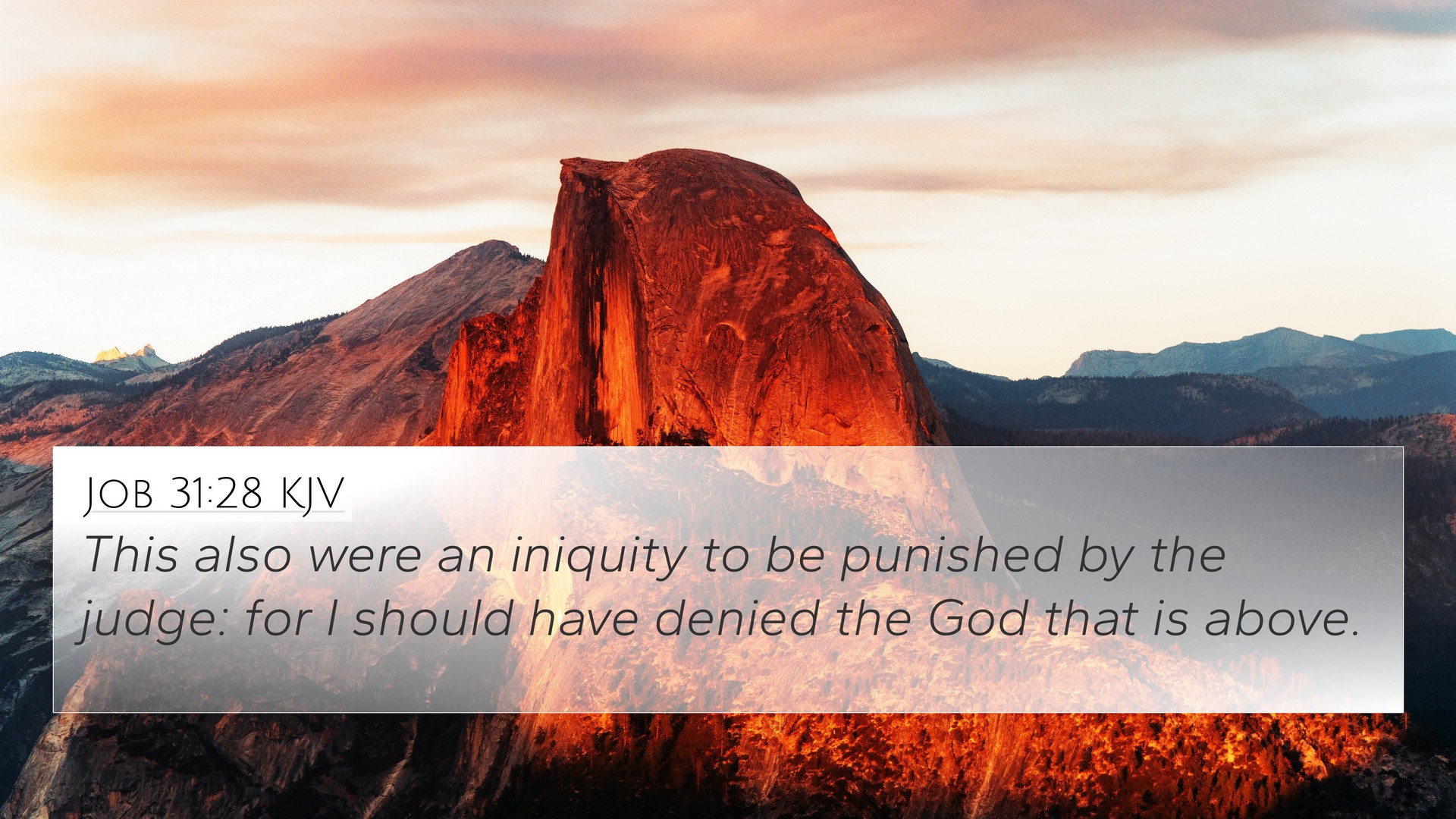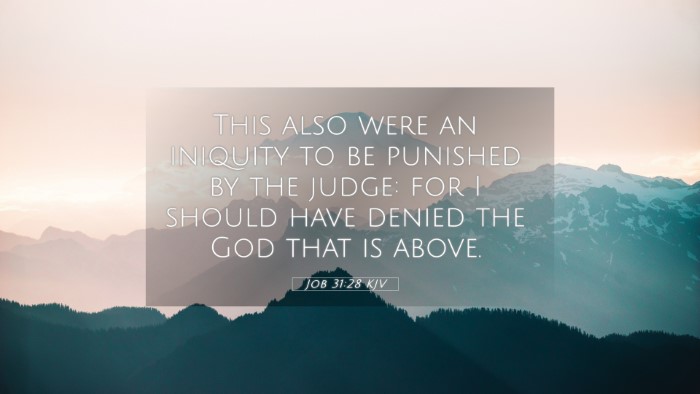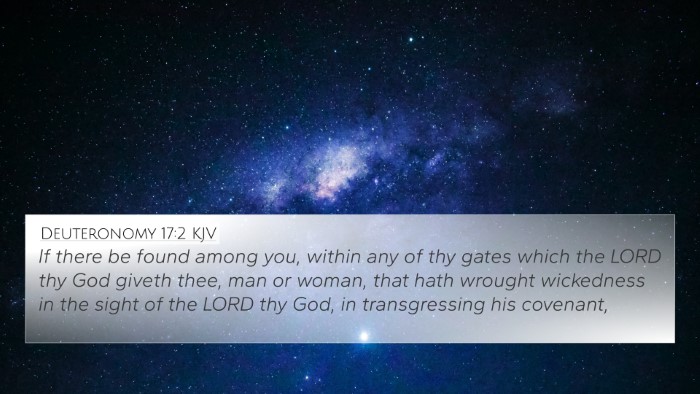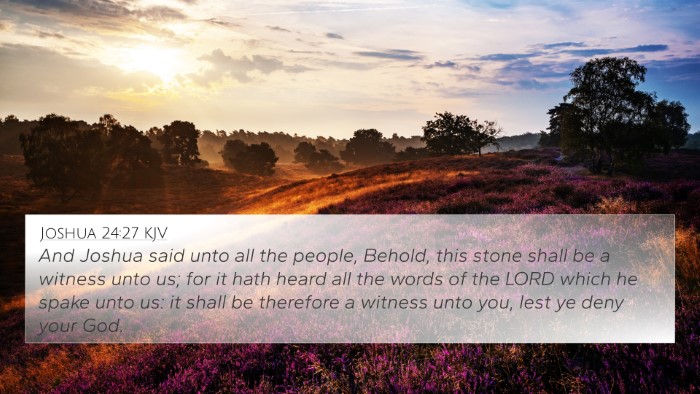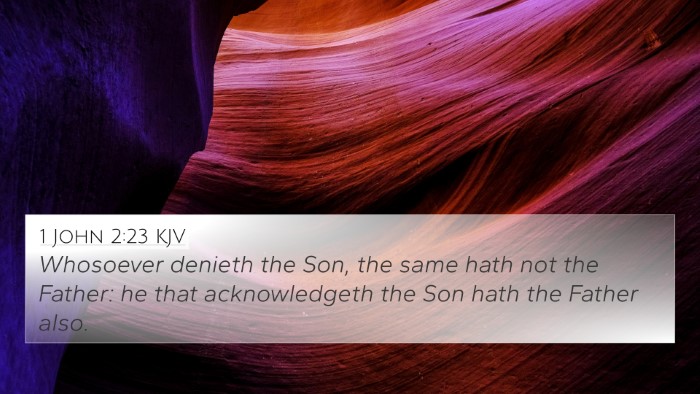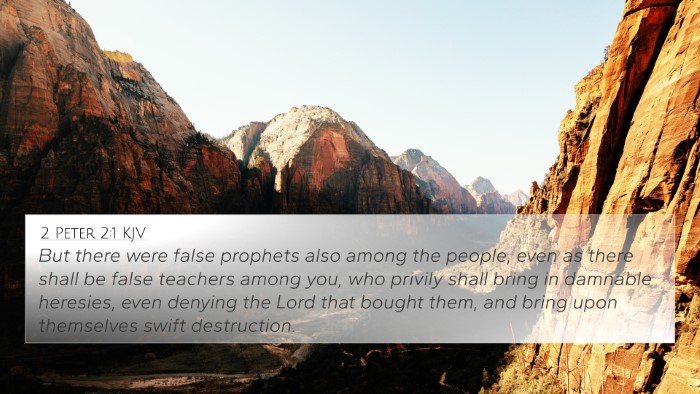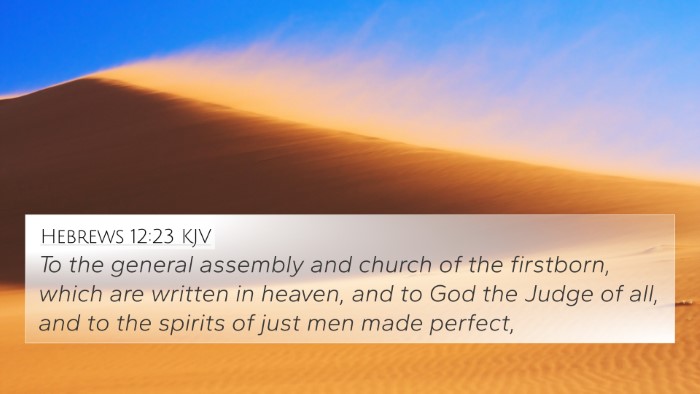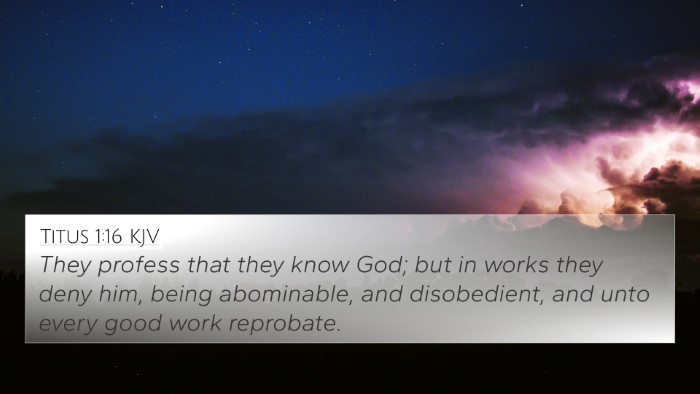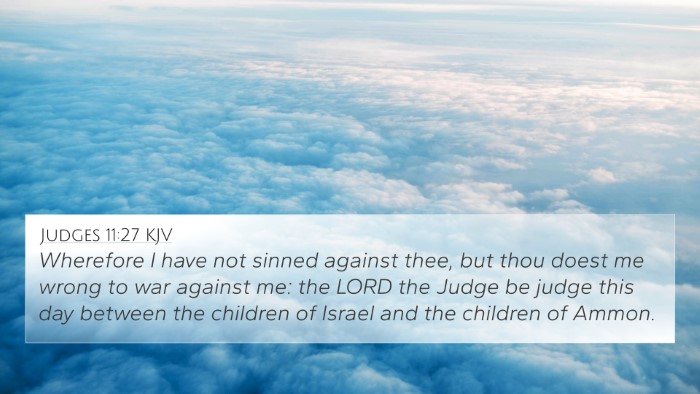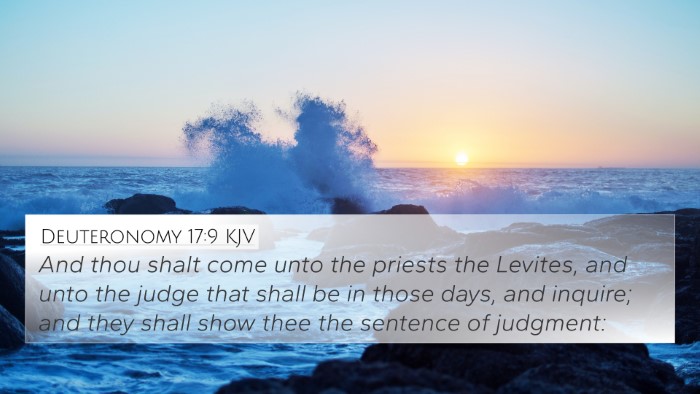Understanding Job 31:28: A Summary of Its Meaning
Job 31:28 states: "This also would be an iniquity to be punished by the judge; For I would have denied God who is above." In this verse, Job is emphasizing the significance of his integrity and moral standing in relation to God. His assertion highlights a deep understanding of sin and the implications of betrayal against divine authority.
Insights from Public Domain Commentaries
-
Matthew Henry:
Henry interprets this verse as Job reinforcing his innocence regarding the charges brought against him. He emphasizes that should he indulge in unclean thoughts or actions, it would not just be a mere transgression but an outright denial of God’s sovereign authority. Job's understanding of sin includes not only the act itself but the relational breach it creates with the divine.
-
Albert Barnes:
Barnes comments that this statement illustrates Job’s profound awareness of the theological ramifications of sin. He argues that to engage in such iniquity would mean repudiating the very God whom he fears and serves. For Barnes, this highlights a central theme in Job’s discourse — a commitment to the truth of God’s presence and judgments in human affairs.
-
Adam Clarke:
Clarke delves into the implications of the verse, asserting that Job might be indicating the severity of committing acts that are against divine law. By referring to God as "who is above," it signals the highest authority, reinforcing that everything is subject to divine judgment. Clarke notes that Job is acutely aware of how personal conduct not only impacts one's relationship with God but also aligns oneself with or against divine justice.
Thematic Connections and Cross-References
Job 31:28 can be connected to several key biblical texts that underscore themes of integrity, divine justice, and the nature of sin. Below are some relevant verses that facilitate deeper insights into this theme:
- Psalms 51:4: "Against You, You only, have I sinned, and done this evil in Your sight." This verse reveals the acknowledgment of sin as primarily an offense to God.
- Proverbs 5:22: "His own iniquities entrap the wicked man, and he is caught in the cords of his sin." This shows the consequences of sin, aligning with Job’s understanding of punishment.
- Isaiah 59:2: "But your iniquities have separated you from your God; and your sins have hidden His face from you." This verse connects to the relational impact of sin which Job is wary of.
- James 4:17: "Therefore, to him who knows to do good and does not do it, to him it is sin." This illustrates that sin involves knowledge and choice, principles Job grasps.
- 1 John 1:6: "If we say that we have fellowship with Him, and walk in darkness, we lie and do not practice the truth." This ties back to the nature of one’s conduct in relation to divine truth.
- Romans 1:18: "For the wrath of God is revealed from heaven against all ungodliness and unrighteousness of men, who suppress the truth in unrighteousness." This emphasizes the nature of sin again in the context of relationship with God.
- Galatians 6:7: "Do not be deceived, God is not mocked; for whatever a man sows, that he will also reap." This links directly to Job's concern about the moral consequences of sin.
Connecting the Dots: Inter-Biblical Dialogue
The themes presented in Job 31:28 resonate throughout the Scripture, encouraging readers to engage in cross-referencing to deepen their understanding of biblical morality and its divine implications. This verse not only informs the reader about Job's personal stand against sin but also invites them to explore how this theme is echoed in various parts of the Bible.
Using tools for Bible cross-referencing can enhance the study of Job 31:28, leading individuals to identify connections between Old and New Testament teachings. For instance, exploring the connection between Job’s plight and the teachings of Jesus on integrity and sin can elaborate on the moral obligations outlined in the text.
How to Use Bible Cross-References in Your Study
To gain a comprehensive understanding of biblical texts, one can utilize a Bible concordance or cross-reference guide. Here are a few tips:
- Start by identifying keywords or themes in the verse you are studying.
- Consult a Bible concordance for related verses that share similar themes.
- Look at the context of each cross-referenced verse to gather full understanding.
- Note any parallels in interpretation and theological meaning.
- Engage in a comparative study of verses, noting how they inform one another.
Conclusion
Job 31:28 serves as a striking reminder of the weight of sin in the life of believers and the seriousness with which one must regard the relationship with God. The insights from various public domain commentaries highlight the richness of this verse, while the interconnections with other scriptural passages enhance understanding through a broader biblical narrative. By utilizing cross-referencing methods, believers can delve deeper into the themes of integrity and God's justice, learning how to navigate their own paths in light of divine expectation.
